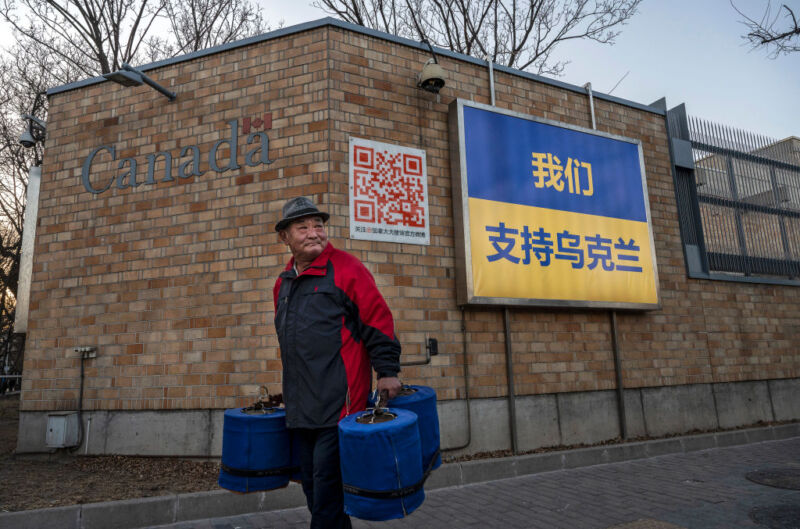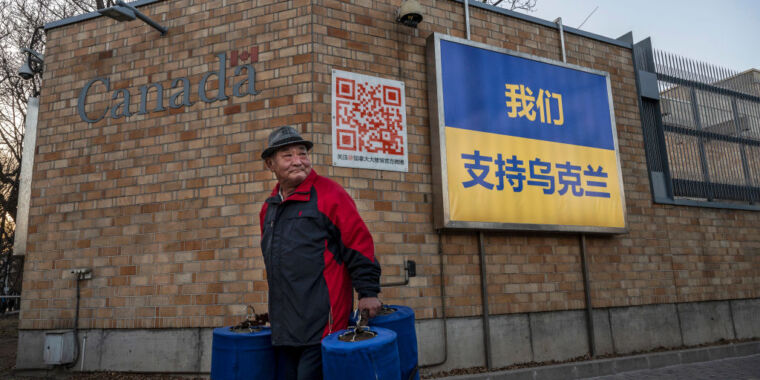
Kevin Strayer | Getty Images
“Artillery fire lights up the sky and breaks my heart. I hope my compatriots in Ukraine are taking care of themselves and their families,” said a user on Weibo, often called China’s Twitter, on February 27. The message was quickly blocked, according to Free Weibo, a service of Great Fire, which tracks Chinese censorship online.
Two days later, a very different message appeared on Weibo: “I support fighting! America and Taiwan have gone too far.” That, too, was blocked, according to Free Weibo.

The messages—and their quick disappearance—show how Chinese social media platforms find themselves in the crosshairs of the Russia-Ukraine war. The platforms must be sure to toe the official line amid subtle shifts in China’s position. Their responses could be an early test of new rules governing how companies use algorithms, which may make them responsible for trending topics and fake news appearing on their sites.
In general, Chinese online platforms receive daily guidance from the government about what sort of content to remove, says Yuqi Na, a researcher in media and communications at the University of Westminster.
A hint of how that works emerged in the days leading up to the invasion. On February 22, a Chinese outlet called Horizon News briefly posted, probably by accident, what appear to be internal instructions for how to spin the Ukraine crisis on its official Weibo account. Among the supposed rules: “Do not post anything unfavorable to Russia or pro-Western.”








